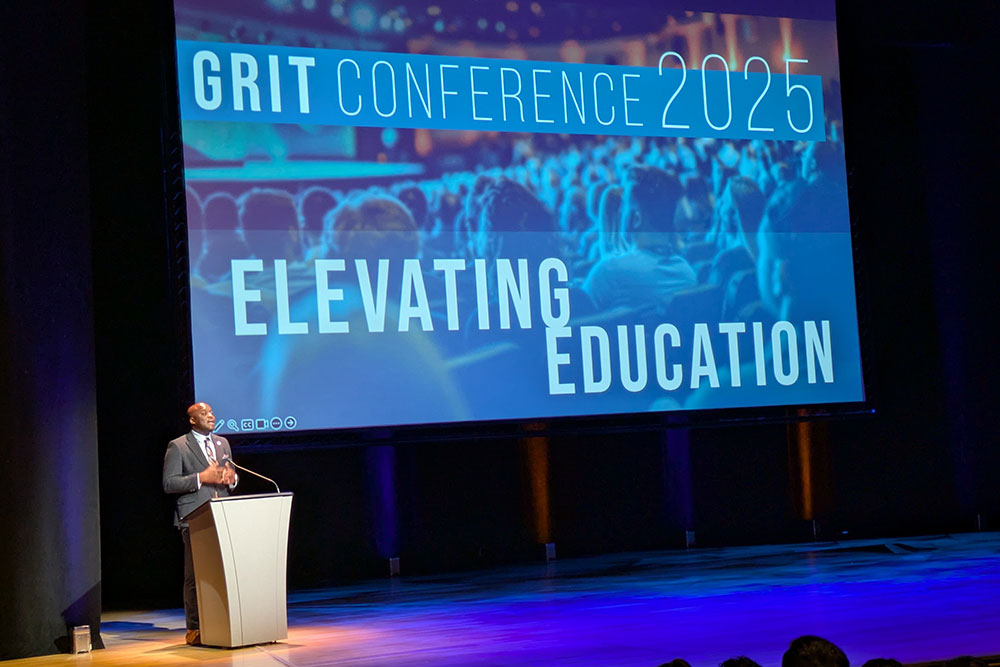Elevating Education: Celebrating the 2nd Annual GRIT Conference

By Lauren Shaw, Psy.D.
GRIT Program Manager
It has been almost a month since our second annual GRIT Conference, and we are already excited about next year’s conference! It was a wonderful day of connection with messages of strength, inspiration, and resilience. We would like to extend a heartfelt “thank you” to everyone who was able to attend and make this a truly memorable day. This year’s theme was “Elevating Education” where we explored resilience through the lens of education, from supporting students to supporting teachers, staff, and administrators. There was an amazing lineup of keynote speakers to include Olympian Hunter Kemper; CEO of Big Brothers Big Sisters, Elycia Cook; Former Colorado College President, Mike Edmonds; and Meg Fredrick and Jeff Kenefsky with the Mindfulness and Positivity Project. We also had inspirational openings from Colorado Springs’ Mayor Yemi Mobolade; UCCS Chancellor, Jennifer Sobanet; and the Institute’s own, Dr. Chip Benight.
The field of education has experienced an unprecedented amount of change over the past year, so this year’s conference theme was both necessary and timely.
The challenges within the realm of education are unique; some of the most notable include funding constraints, lack of resources for teachers, teacher burnout and high turnover, and student mental health challenges. Additional considerations include the broader socioeconomic challenges that contribute to educational disparities, particularly for marginalized populations.
Even in the face of challenges that often feel insurmountable, there exists a unique opportunity for educators to support one another, as well as their students. Resilience, in the broadest sense, is the ability to successfully adapt to life’s challenges and difficult experiences. Generally, we tend to think of resilience as a uniquely individual experience; however, research shows that resilience is strongly aligned with social support. Social support networks can provide emotional support, practical assistance, and help to foster a sense of connection and belonging; these components significantly improve an individual’s ability to cope more effectively and recover from challenges and setbacks.
Social connections can come in many forms, whether family and close friends, community-level support, such as educators, and even interactions with neighbors and coworkers. Each of these relationships serves an important purpose in fostering individual resilience. For example, some relationships are helpful for emotional support, while others are more suited for problem-solving. In essence, communities that prioritize social connection are more likely to be resilient, as a whole. Individuals are more likely to reach out for support in times of stress, as well as mobilize or come together during times of crisis because they feel supported by the group or community.
The GRIT Program provides training on how to take steps toward creating a more resilient environment by learning the skills to help foster more supportive conversations around more effective coping in the face of stress. If you haven’t taken the training, we invite you to learn more! And, if you couldn’t attend this year’s conference, please consider attending next year’s conference for another amazing event. To learn more, please visit our website at www.grit.uccs.edu.